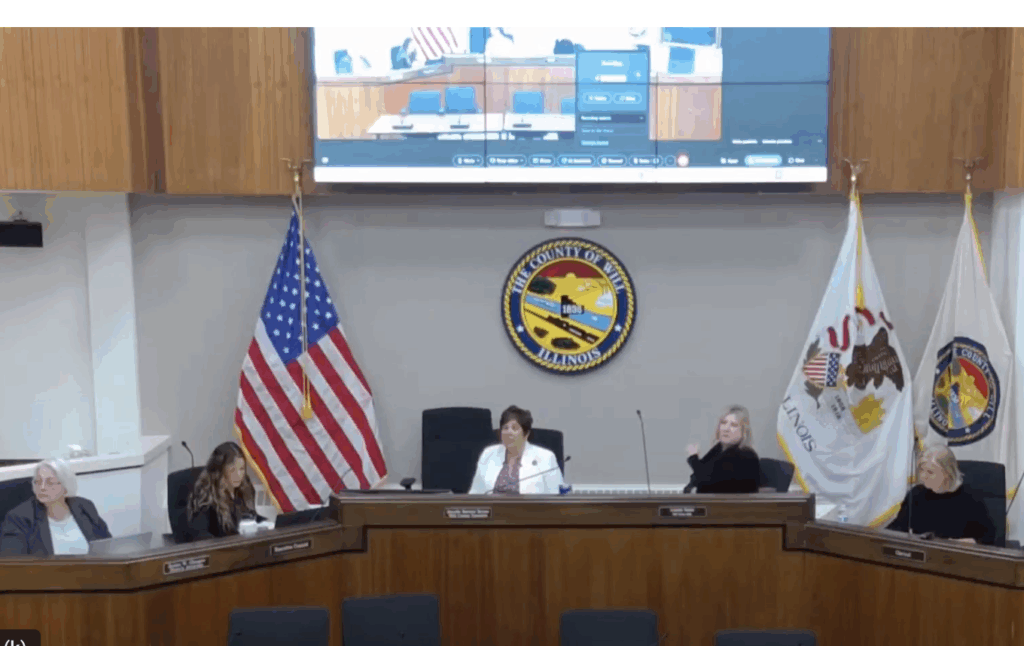
Lawmakers, advocates discuss battery storage, consumer costs in energy bill
(The Center Square) – An Illinois state lawmaker is pushing battery storage legislation, but not all of her Democratic colleagues are on board.
State Rep. Ann Williams, D-Chicago, said the Clean and Reliable Grid Affordability Act (CRGA) builds upon the Climate and Equitable Jobs Act (CEJA), which Gov. J.B. Pritzker signed into law in 2021, but Williams said the landscape has changed dramatically.
“Data centers, advanced manufacturing practices and, of course, the efforts we’ve all made toward electrification are generating a lot of demand,” Williams said during a press conference Tuesday at the Illinois Capitol.
Williams was joined by members of the solar industry and clean energy advocates and said she hoped to get the bill passed during fall veto session this month.
“Storage is where it’s at,” Williams asserted.
State Sen. Willie Preston, D-Chicago, expressed concerns about the cost of battery storage.
“I know that any other line item put on a utility bill, a light bill, could just crush working-class people in these high inflationary times,” Preston told The Center Square last Friday.
Preston said he’s a “hard no” on an energy omnibus.
Energy industry leaders are similarly divided when it comes to CRGA’s price tag.
Barry Matchett of Clearway Energy Group, a national renewable and battery storage developer, said CRGA would save ratepayers $34 billion over the next 20 years.
“A big part of it is the storage section for utility-scale storage,” Matchett said at Tuesday’s press conference in Springfield.
Jim Watson, executive director of the American Petroleum Institute in Illinois, said CRGA would provide about $14 billion through 2035 for six gigawatts of battery storage, or about four hours of energy storage per day. Watson said transmission losses and the intermittent nature of wind and solar would reduce the capacity to about two hours per day.
“It’s going to be a hit to consumers. It’s going to be a hit to large industrial users,” Watson told The Center Square.
Watson said the measure’s projected cost savings by advocates include indirect benefits that are not guaranteed. He noted it is unusual that the legislation does not include price caps to protect consumers.
“I think what you’re going to find is, you know, the solar people don’t want that. They want to be able to get the maximum return,” Watson explained.
Watson said battery storage will not solve Illinois’ capacity issues.
“The one thing that we’re going to have nationwide is capacity issues, energy capacity. The only way to get there is through natural gas, or nuclear, but nuclear’s going to take a long time to build,” Watson told The Center Square.
Watson said he hopes Gov. J.B. Pritzker relaxes decarbonization mandates to meet the energy demands of data centers and artificial intelligence.
Latest News Stories

D122 to Spend $24,950 on Professional Enrollment Forecast

Manhattan Police Report

JJC Trustees Approve Contentious FY26 Budget After Heated Debate, Failed Postponement

Lincoln Way District 210 Approves $2.1 Million Budget Amendment, Maintains Strong Financial Position

JJC’s ‘12x12x12’ Initiative Boosts College Credits, Increases Matriculation Rate

District 210 Approves Administrative Restructuring, Staff Salary Increases

JJC Board Meeting Highlights Tensions Over Legal Bills, Trustee Conduct

Students, Trustees Emphasize Importance of Inclusivity and Flag Raisings at JJC

L-W School Board June 26 Meeting Briefs

JJC Embarks on New 10-15 Year Facilities Master Plan Process

Meeting Summary: Joliet Junior College Board of Trustees for June 25, 2025

Will County Board Halts Transportation Plan After Contentious 143rd Street Debate
